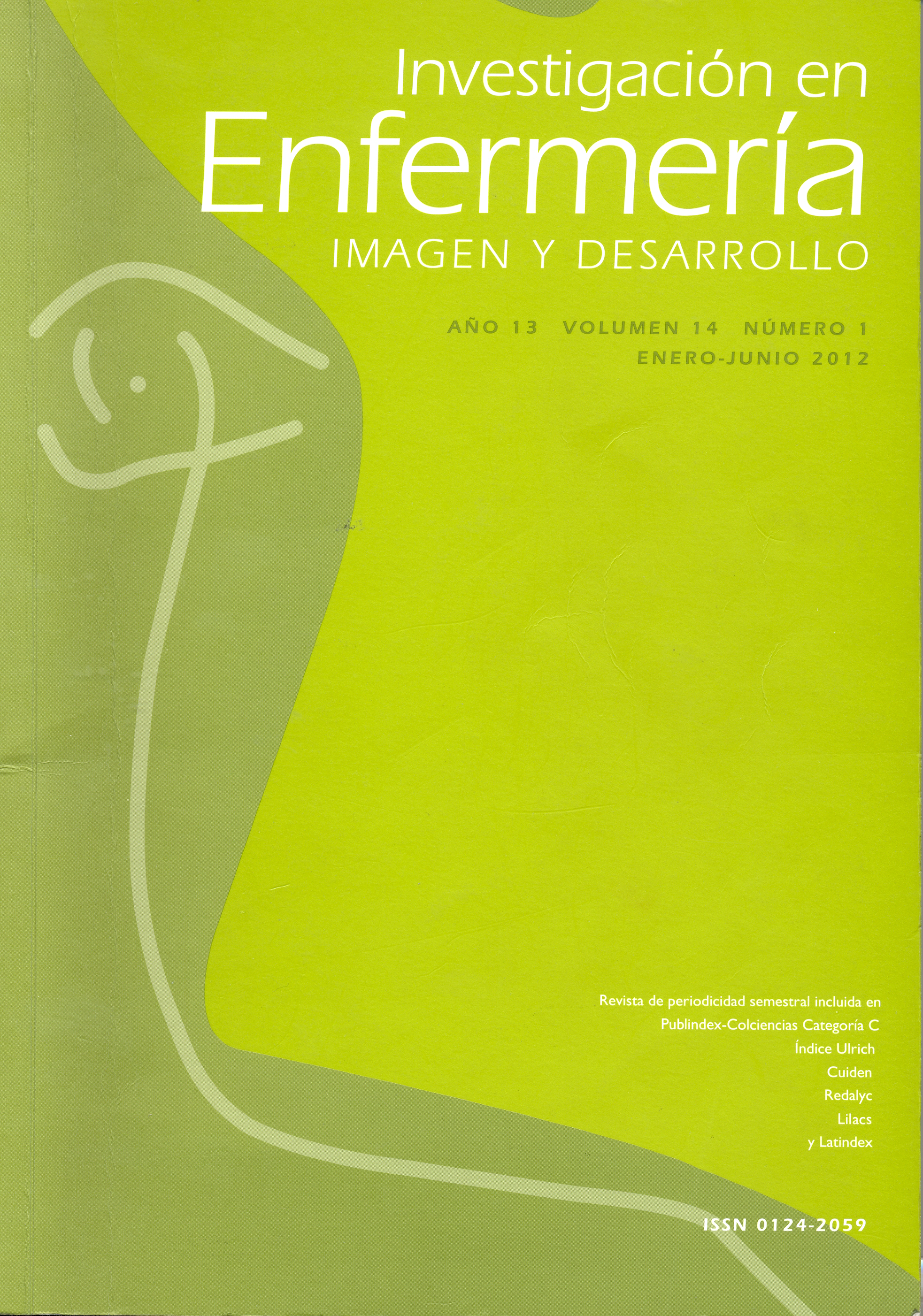Abstract
The family involvement in advanced scenarios, such as cardiopulmonary-cerebral resuscitation (CPCR), can become a key element in the care for patients at imminent risk of dealth and allows for a more humane approach to the context of resuscitation. However, there are various debates grounded on the perceptions of the nursing staff, the family and the patients who have survived, as they are the three actors involved in this scenario. Therefore ,this paper analyzes these perceptions in order to recognize the family as fundamental part in the patient’s clinical course; promote the development of a bond between the family, the team and the patient; and encourage greater acceptance of the reality of death and its grieving process. Thus, the nurse practitioner is the best-suited individual to offer support and guidance for the family at that time.
The journal Investigación en Enfermería: Imagen y Desarrollo is registered under a Creative Commons Attribution 4.0 International Public License. Thus, this work may be reproduced, distributed, and publicly shared in digital format, as long as the names of the authors and Pontificia Universidad Javeriana are acknowledged. Others are allowed to quote, adapt, transform, auto-archive, republish, and create based on this material, for any purpose (even commercial ones), provided the authorship is duly acknowledged, a link to the original work is provided, and it is specified if changes have been made. Pontificia Universidad Javeriana does not hold the rights of published works and the authors are solely responsible for the contents of their works; they keep the moral, intellectual, privacy, and publicity rights.
Approving the intervention of the work (review, copy-editing, translation, layout) and the following outreach, are granted through an use license and not through an assignment of rights. This means the journal and Pontificia Universidad Javeriana cannot be held responsible for any ethical malpractice by the authors. As a consequence of the protection granted by the use license, the journal is not required to publish recantations or modify information already published, unless the errata stems from the editorial management process. Publishing contents in this journal does not generate royalties for contributors.


